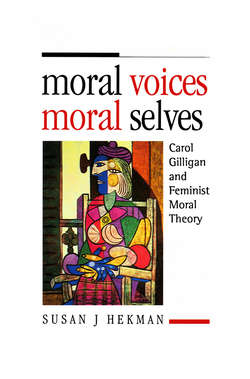Описание книги
This book is an original discussion of key problems in moral theory. The author argues that the work of recent feminist theorists in this area, particularly that of Carol Gilligan, marks a radically new departure in moral thinking. Gilligan claims that there is not only one true, moral voice, but two: one masculine, one feminine. Moral values and concerns associated with a feminine outlook are relational rather than autonomous; they depend upon interaction with others. In a far-reaching examination and critique of Gilligan's theory, Hekman seeks to deconstruct the major traditions of moral theory which have been dominant since the Enlightenment. She challenges the centrepiece of that tradition: the disembodied, autonomous subject of modernist philosophy. Gilligan's approach transforms moral theory from the study of abstract universal principles to the analysis of moral claims situated in the interactions of people in definite social contexts. Hekman argues that Gilligan's approach entails a multiplicity of moral voices, not just one or even two. This book addresses moral problems in a challenging way and will find a wide readership among philosopher's, feminist thinkers and psychologists.
